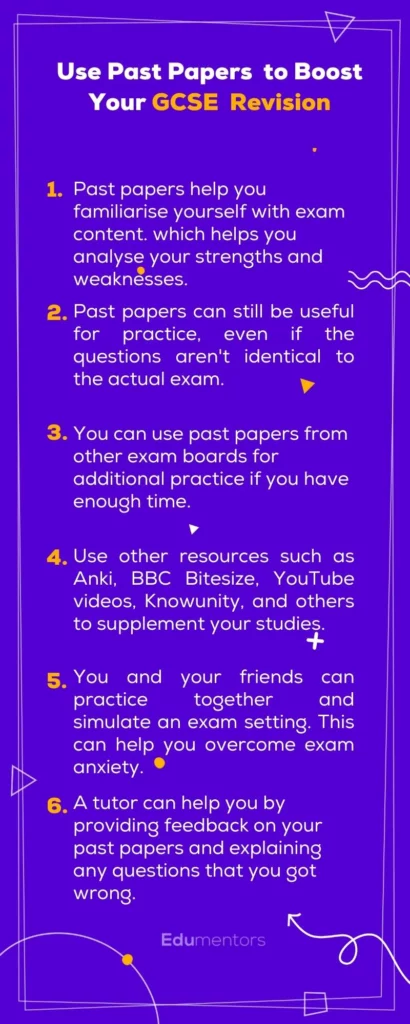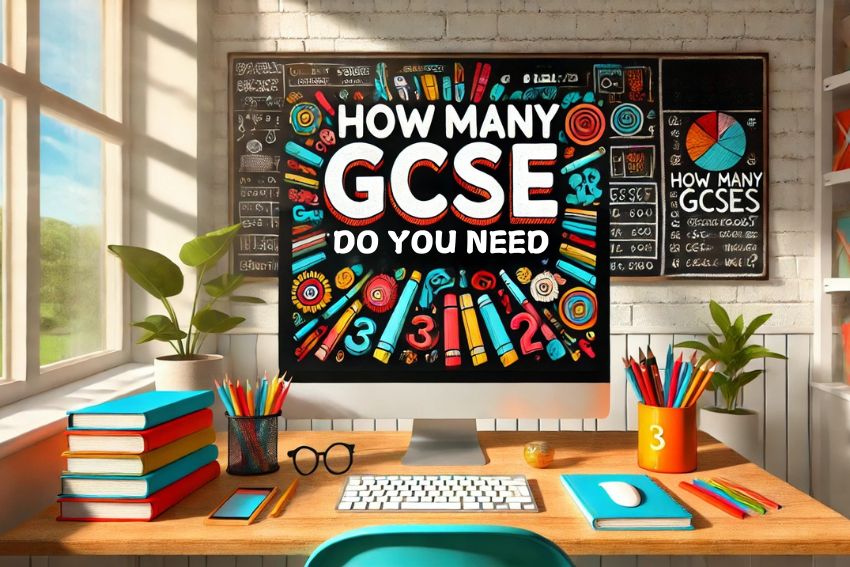AQA GCSE French
| Years | Question Papers | Assessment |
| November 2020 | Higher Tier Listening Paper 1 | Mark Scheme |
| November 2021 | Foundation Tier Listening Paper 1 | Mark Scheme |
| June 2022 | Higher Tier Reading Paper 3 | Mark Scheme |
| June 2023 | Foundation Tier Writing Paper 4 | Mark Scheme |
| June 2024 | Foundation Tier Listening Paper 1 | Mark Scheme |
Pearson Edexel GCSE French
| Years | Question Papers | Assessment |
| November 2020 | Foundation Tier Listening Paper 1 | Mark Scheme |
| November 2021 | Higher Tier Reading Paper 3 | Mark Scheme |
| June 2022 | Foundation Tier Writing Paper 4 | Mark Scheme |
| June 2023 | Higher Tier Listening Paper 1 | Mark Scheme |
| June 2024 | Foundation Tier Reading Paper 3 | Mark Scheme |
WJEC Eduqas GCSE French
| Years | Question Papers | Assessment |
| November 2018 | Foundation Tier Listening Unit 2 | Mark Scheme |
| November 2019 | Higher Tier Writing Unit 4 | Mark Scheme |
| June 2022 | Higher Tier Writing Unit 4 | Mark Scheme |
| June 2023 | Higher Tier Speaking Unit 1 | Mark Scheme |
| June 2024 | Foundation Tier Listening Unit 2 | Mark Scheme |

FAQs
What is GCSE French?
GCSE French is a qualification in the United Kingdom that students can take at the age of 15-16. It stands for General Certificate of Secondary Education in French. It is a two-year course designed to test students’ abilities in the French language in four main areas: listening, speaking, reading, and writing. It is a widely recognized qualification that can be used to gain access to further education, employment, or even immigration purposes.
What are the Requirements for GCSE French?
GCSE French can be taken by students independently or as part of a school curriculum. However, the requirements to sit for the exam remain the same regardless of the route taken. Students who wish to take the GCSE French exam are recommended to have a basic understanding of the language and its grammar. They must also be able to comprehend simple texts, and express themselves orally and in writing using basic vocabulary and grammar.
What Topics are Covered in GCSE French?
The topics covered in GCSE French may vary slightly depending on the exam board and school, but generally, the following topics are covered:
- Identity and culture. Including personal information, hobbies, interests, and cultural activities.
- Local, national, international, and global areas of interest such as travel, holidays, weather, and environmental issues.
- School life. Including subjects, teachers, and facilities.
- Future aspirations, study, and work: such as job opportunities, career paths, and future plans.
- Social issues such as charity work, volunteering, and current affairs.
- Home and local area. Including where you live, local amenities, and events.
- Healthy living. Including diet, exercise, and mental and physical health.
- Technology and social media. Including the impact of social media and technology on society, communication, and relationships.
- Leisure. Including music, cinema, and sport.
Overall, the topics are designed to help students communicate in French in a variety of real-life situations and to develop cultural understanding and language skills.
What is the Format of the GCSE French Exam?
The GCSE French exam consists of four components:
- Listening: Students will listen to a range of spoken material in French and answer questions to demonstrate their understanding. This component makes up 25% of the final grade.
- Speaking: Students will take part in a conversation with an examiner in French, demonstrating their ability to communicate effectively. This component makes up 25% of the final grade.
- Reading: Students will read a variety of texts in French and answer questions to demonstrate their understanding. This component makes up 25% of the final grade.
- Writing: Students will write in French on a range of topics, demonstrating their ability to communicate effectively in writing. This component makes up 25% of the final grade.
How Can I Prepare for GCSE French?
To prepare for GCSE French, you can take the following steps:
- Build your vocabulary. Learning new words and phrases is essential for improving your understanding and communication skills in French. Use flashcards, apps, and other resources to expand your vocabulary.
- Practice grammar. French grammar can be complex, but it is essential to master it to communicate effectively in French. Make sure you understand the different verb tenses, sentence structures, and rules of agreement.
- Practice listening and speaking. Listening and speaking are crucial aspects of learning a new language. Practice listening to French audio resources like podcasts, music, and videos. Practice speaking by engaging in conversation with native French speakers, fellow learners, or your teacher. Also, you can find a GCSE French tutor on Edumentors who is both fluent in English and French and can help you ace your exam.
- Read and write in French. Reading French books, articles, and newspapers can improve your reading comprehension and writing skills. You can also practice writing by keeping a journal in French or writing short essays.
- Practice past papers. Practicing past papers is one of the most effective ways to prepare for the GCSE French exam. You can find past papers and mark schemes on the official exam board’s website or other online resources.
What can I do with a GCSE in French?
GCSE French is among the challenging GCSE subjects. Completing it can open up various opportunities in both academic and professional fields. Here are some of the options:
- Further Education: You can choose to continue studying French at A-Level or pursue a degree in French, either as a single subject or combined with other subjects.
- Career Opportunities: Knowledge of French can enhance your employability and career prospects. You could work in industries such as tourism, hospitality, international business, translation, interpreting, and diplomacy.
- Study Abroad: Having a good understanding of French can increase your chances of getting accepted into a study abroad program in a French-speaking country, allowing you to experience a different culture and language first-hand.
- Personal Growth: Learning a foreign language can also have personal benefits such as developing cross-cultural communication skills, building confidence, and expanding your worldview.








